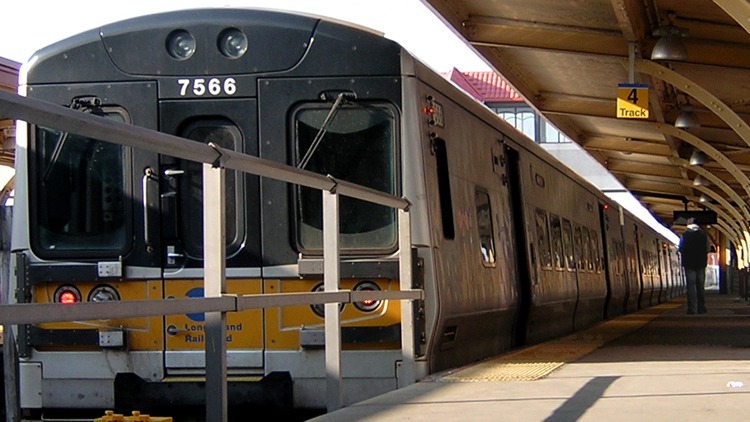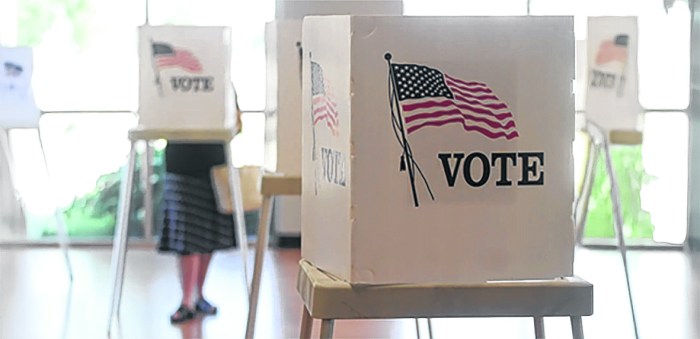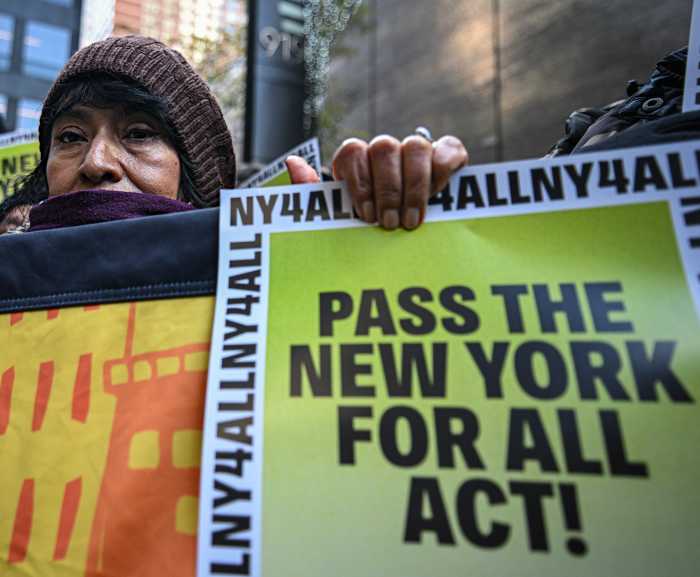The clock is ticking.
Long Island Rail Road union and MTA leaders returned to the bargaining table Wednesday at the behest of Gov. Andrew Cuomo, who released a statement earlier in the day calling on both sides to work “continuously” to avert a possible strike starting at 12:01 a.m. Sunday.
The governor’s message came one day after the MTA and LIRR union leaders released competing open letters in which they both held firm on their positions and tried to win public sympathy, and two days after talks broke down.
The union was more forceful in their message, saying they “regret that MTA’s irresponsible actions will cause a strike beginning this weekend.”
Along with the letter, penned by MTA chairman Thomas Prendergast, the authority released newspaper and radio advertisements on Wednesday.
“Unionized Long Island Rail Road workers are the best paid in the nation,” a woman’s voice blares in the ad. “They make almost $90,000 a year, get free health care and generous pensions. The MTA offered to up their salary 17 percent without raising fares or delaying service improvements, by making modest changes for workers who haven’t even been hired yet. Current employees would get everything they asked for. Yet the unions are still threatening to strike. When is enough enough?”
Despite the ongoing negotiations, commuters are preparing for the worst.
If an agreement is not reached by then and LIRR union workers do, indeed, hit the picket lines that means: a chaotic Monday morning rush hour with commuters either telecommuting, getting the hell out of dodge and taking a long-awaited family vacation or implementing a contingency plan that includes taking a bus, hopping on a ferry or adding to the usual morning traffic jams by reluctantly getting in their vehicles and making the long trip to New York City or wherever their office may be.
And then there are the businesses—delis, newsstands, taxi companies—that rely on commuters to stay afloat, waterfront communities, such as Long Beach, which attracts hundreds of people daily who ride the railroad to the beach, and popular summer destination spots that provide the perfect getaway for people glued to their vehicles daily.
Don’t even ask how summer revelers are going to get to the Boardy Barn this weekend.
Gov. Andrew Cuomo previously said a possible strike wouldn’t be a “disaster”—he reserved that term for events like Superstorm Sandy—but it no doubt will impact thousands of people spanning Nassau and Suffolk counties, plus New York City residents who reverse commute to LI.
“The Long Island Rail Road is a critical transportation system for Long Island and New York City,” Cuomo said in a statement Wednesday. “We must do everything we can to prevent Long Islanders from being held hostage by a strike that would damage the regional economy and be highly disruptive for commuters.”
Cuomo, who is running for re-election in November, has refused to get intimately involved in the negotiations. He originally deferred to Congress, which also refused to intervene.
Related: How to get to NYC with LIRR Strike Expected Sunday?
Long Island’s Congressional delegation released a joint statement also calling on both sides to get their act together for the sake of riders.
“We were extremely disappointed to learn that the MTA left negotiations yesterday without presenting their own counter offer,” Representatives Peter King (R-Seaford), Steve Israel (D-Huntington), and Tim Bishop (D-Southampton) said. “Both sides need to be at the negotiating table non-stop to work out an agreement that keeps the transit workforce on the job and keeps service running for our constituents. Both sides need to do their part to keep negotiations moving forward rather than settling in for a stalemate. A compromise must be reached.”
An estimated 300,000 people ride the LIRR daily, which could add more congestion to the Island’s already busy roadways, said AAA regional spokesman Robert Sinclair Jr.
Sinclair predicted that an extra quarter million people could wind up driving into New York City if LIRR workers strike, though some people may make plans to carpool, he said.
One worry he said AAA has is that many LIRR commuters are not used to the long slog of a commute into Manhattan, and noted that those vehicles may not be “well maintained.”
AAA is already implementing measures to respond to problems on the roadway: extra staff in call centers, additional flatbed trucks used to long distance tows, repositioning towing vehicles usually parked in parks and beaches during the summer months and preparing specialized vehicles equipped with four-wheel.
“They might not be up to the rigors to doing some heavy duty commuting,” he said of “station” vehicles—vehicles commuters use to travel from the railroad to their homes. “And where are they going to park?”
The MTA and LIRR union leaders are feuding over demands that both sides find unfair. The MTA is offering 17-percent wage increases over seven years and wants workers to contribute 2-percent to their health care plans; unions are asking for the same wage increase but over six years.
The MTA has put together a contingency plan for riders, which includes:
- a network of buses that will shuttle commuters eight locations in Nassau and Suffolk counties to subway stations in Queens
- ferry service from Glen Cove to East 34th Street in Midtown, park-and-ride lots in
- park-and-ride lots at Citi Field and Aqueduct Racetrack where customers can connect to subways
- parking areas in Nassau and Suffolk for carpooling
A trio of elected state officials from Suffolk criticized the MTA’s plan as insufficient for East End residents. They panned the MTA for providing shuttle buses only as far as Ronkonkoma.
“I would like to impress upon the MTA/LIRR that Long Island does not end at Exit 60,” State Sen. Ken LaValle (R-Port Jefferson) said in a statement.
But it was the newfound spirit to negotiate that was on everyone’s mind Wednesday.
“Both sides will be in communication tonight and will be back at the bargaining talks again [Thursday],” MTA spokesman Aaron Donovan said.


































